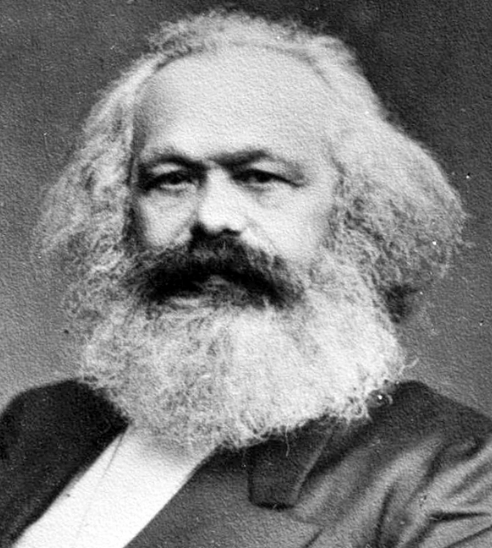On this date in 1818, Karl Heinrich Marx, descended from a long line of rabbis, was born in the Prussian Rhineland. His father converted to Protestantism shortly before Marx’s birth. Educated at the Universities of Bonn, Jena and Berlin, Marx started writing for the German language, socialist newspaper Vorwärts! (Forward) in 1844 in Paris. After being expelled from France at the urging of the Prussian government, which “banished” him in absentia, he studied economics in Brussels.
He and Friedrich Engels founded the Communist League in 1847 and published the Communist Manifesto. After the failed revolution of 1848 in Germany, in which Marx participated, he eventually wound up in London. Marx worked as foreign correspondent for several U.S. publications. His Das Kapital came out in three volumes (1867, 1885 and 1894). He organized the International and helped found the Social Democratic Party of Germany.
Although Marx was an atheist, Bertrand Russell later remarked, “His belief that there is a cosmic force called Dialectical Materialism which governs human history independently of human volitions, is mere mythology.” (Portraits From Memory, 1956) Marx once quipped, “All I know is that I am not a Marxist.” (According to Engels in a letter to C. Schmidt; Who’s Who in Hell by Warren Allen Smith)
He married German theater critic and political activist Jenny von Westphalen in 1843. They had seven children. Only three survived to adulthood. In poor health for much of his life, he died at age 64 in London, two years after his wife. (D. 1883)
PHOTO: Marx in 1875.


